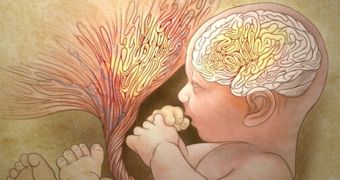Researchers at Yale University's School of Medicine and the University of California are now looking to test the theory that abnormalities detected in an infant's placenta are an indicator of a child's risk to have autism.
According to The Inquisitr, the scientists have thus far examined the placentas of 217 newborns, and have found that several of them had abnormal creases and folds.
Interestingly enough, these unusual placentas came from children whose families' medical histories indicated that they were more likely to suffer from said medical condition.
The researchers now wish to closely monitor the children for at least two years, and see whether or not those born with abnormal placentas do, in fact, develop autism.
If this is indeed the case, the researchers hope they will be able to use this piece of information to develop tests that will allow doctors to detect autism shortly after an infant is born.
Thus, autism patients might one day benefit from new and more effective treatment, the same source tells us.

 14 DAY TRIAL //
14 DAY TRIAL //